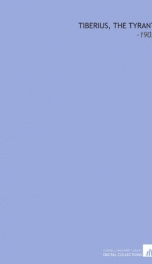some observations of a foster parent

Purchase of this book includes free trial access to www.million-books.com where you can read more than a million books for free. This is an OCR edition with typos. Excerpt from book: writing for some thousand years, but the art of calculating by means of the Arabic numerals is by no means so ancient. My encyclopedia informs me that " the Arabic numerals were not generally introduced into England till the commencement of the seventeenth century, and it was long after that time before the decimal arithmetic became general." That is to say that the educated part of us have only used these numerals for three hundred years ; while the majority of us must have a considerable number of illiterate ancestors to show in our pedigrees during that period who never used them at all. The art of calculating with our present numerals is, in fact, the employment of a new language ; indeed, the representation of sounds by written words and of things by sounds is perhaps a less wonderful thing than the invention of this language of quantity for the employment of which we have been developing our aptitude only for ten generations. To show what an immense step the adoption of the Arabic numerals and the decimal notation really amounts to, I would invite my readers to add, subtract, multiply, and divide, employing the Roman numerals. The thing is an impossibility ; and when these numerals or similar numerals were alone in use, calculations could only be worked out by employing an abacus or some similar mechanical contrivance. Tallies and tokens of different kinds were largely employed by the ancients in keeping accounts. We all have heard of the Chancellor of the Exchequer, and have a more or less precise idea of the duties of that functionary; but how did the Exchequer get its name ? There is extant a dialogue written by Richard, Bishop of London, Treasurer of the Exchequer in the reign of Henry II., in which the functions and functionaries of the Court of Exchequer ar...
Info about the book
Author:
Series:
Unknown
ISBN:
0559330103
Rating:
4/5 (9)Your rating:
0/5
Languge:
English
Users who have this book
Users who want this book
What readers are saying
What do you think? Write your own comment on this book!
write a commentif you like some observations of a foster parent try:
Do you want to read a book that interests you? It’s EASY!
Create an account and send a request for reading to other users on the Webpage of the book!




